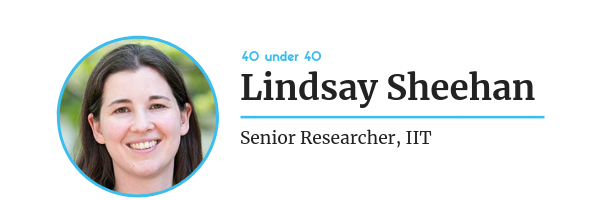People with mental health disorders often suffer silently without the latest treatments, especially those in low-income urban areas. Like a modern-day Robin Hood for the mentally ill, Dr. Lindsay Sheehan employs “community-based participatory research” to transfer new health technologies from resource-rich universities to underserved communities.
Tell us about your research…
People who have a serious mental illness not only struggle with depression, anxiety, and thought disorders, they also have increased risk of chronic physical illness and premature death. This disparity is worse for people of color who live in resource-challenged urban communities. My research recognizes community members who have mental illness as the experts in developing, implementing and evaluating technologies that can improve their health. By using a process called community-based participatory research, I partner with teams of community members to transfer health technologies from resource-rich universities to the underserved communities of Chicago.
My research recognizes community members who have mental illness as the experts in developing, implementing and evaluating technologies that can improve their health.
Can you explain that to a non-scientist?
In community-based participatory research, community members meet regularly at the research lab to decide what research topics are important to them and are paid partners during the entire research project. As a researcher, I am able to learn more about what the community needs and how healthcare solutions might work for that community. In turn, community members learn about research and can help implement research findings. I work together with community members to write grants that can impact the local community.
How could it someday impact patient lives?
Historically, people with mental illness have traditionally been disenfranchised, alienated from their communities, and subject to coercive and discriminatory practices. When we invite people from disadvantaged communities to the research table, this can be life-changing for the researcher and the community member, producing research that can be more widely applicable. The creation of long-term partnerships, increased trust, and sharing of responsibility for health solutions can increase empowerment of people who live with a serious mental illness.


